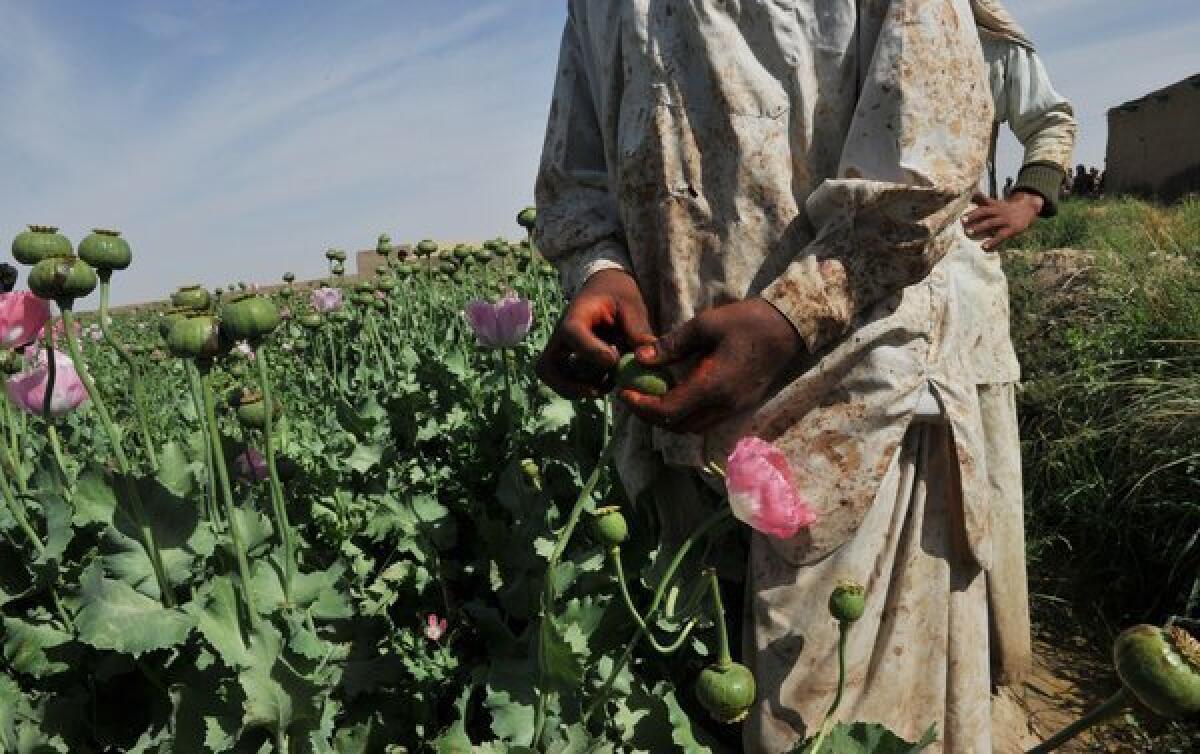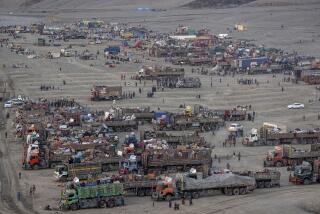More Afghan land cultivated for opium poppies, U.N. finds

More Afghan land is being used to grow opium poppies than a year ago, the United Nations drug agency said in a new report released Tuesday that underscores the challenges in combating the illicit crop.
It marks the second year that opium cultivation has expanded in Afghanistan, according to the U.N., bringing it close to levels last seen four years ago.
Though the Afghan government stepped up eradication efforts, more than doubling the area it tackled, the area devoted to cultivating opium poppies grew by nearly a fifth, spanning 154,000 hectares, or about 380,542 acres. Almost all the poppies were found in the troubled southern and western stretches of Afghanistan, which churns out the bulk of the worldwide crop.
Hefty prices for opium were behind the expansion, U.N. Office on Drugs and Crime executive director Yury Fedotov said. While prices fell somewhat in the last year, they remained alluring for Afghan farmers.
The U.N. and other international groups have tried to combat opium not only as an addictive drug, but as a source of money for criminals and insurgents in Afghanistan.
In spite of the growing area dedicated to opium, average yields actually dropped because of disease and a cold spell, the report found. The U.N. estimated the amount of Afghan opium that could have been produced fell from 5,800 tons to 3,700 tons.
Such “hiccups” in opium production may not necessarily impact markets because Afghans sometimes keep inventories to cover weak years, said Jonathan P. Caulkins, a public policy professor at Carnegie Mellon University. There is no good data on how big those inventories are, he said.
The report did reveal one potentially promising sign: Less opium was cultivated in a “food zone” in Helmand province, where 42,000 farmers had received agricultural aid during poppy planting season, compared with other areas of the province. But opium cultivation appears to have moved elsewhere, a persistent phenomenon in Afghanistan, experts say.
“It is hard to sustain such successes without addressing the systemic role opium plays” for farmers in an unstable region, wrote Justin Mankin, a Stanford University researcher. Growing opium poppies “is likely as much of a response to the insurgency as an instigator of it.”
It will take more widespread and systemic economic development to turn farmers away from opium, argued Pierre-Arnaud Chouvy, research fellow at the French National Center for Scientific Research.
“It’s been the same story for over a decade now. Nothing can be done quickly,” Chouvy said. The pullout of Western forces could worsen the situation, if security deteriorates further, he added. “It doesn’t bode well for reducing opium production.”
ALSO:
Congo rebels occupy key city of Goma
Church of England votes against having female bishops
Pakistani court dismisses blasphemy case against Christian girl
More to Read
Start your day right
Sign up for Essential California for news, features and recommendations from the L.A. Times and beyond in your inbox six days a week.
You may occasionally receive promotional content from the Los Angeles Times.






